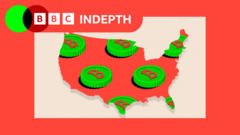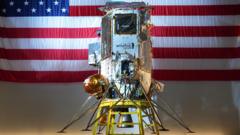As the trend of creating personalized AI dolls gains traction, experts voice concerns about its environmental impact and copyright issues.
AI Dolls Trend: Fun or Environmental Hazard?

AI Dolls Trend: Fun or Environmental Hazard?
A look into the concerns surrounding the rising popularity of AI-generated dolls and action figures.
The recent surge in creating AI-generated dolls and action figures has captured the attention of many social media users. By utilizing generative artificial intelligence tools like ChatGPT and Copilot, people are customizing miniature versions of themselves and sharing them online. While the trend has attracted widespread participation, experts caution against the potential risks associated with this fun but seemingly innocuous pastime.
The process of generating these digital dolls is fairly straightforward. Users typically submit a selfie to an AI platform along with specific instructions regarding the desired appearance and accessories of the final image. Users can personalize their dolls further by choosing their job titles and even mimicking iconic toy packaging, adding to the allure of the trend. Influencers and brands are joining the fad, adding an element of commercialization to the excitement.
However, amidst the enthusiasm, concerns have been raised about the environmental impact of using AI technologies. Professor Gina Neff from Queen Mary University in London highlights that the energy consumption of AI applications, like ChatGPT, surpasses the electricity needs of 117 countries each year. Observations from tech experts suggest that each AI-generated image may contribute to a significant environmental cost, prompting discussions around the sustainability of such technology in our digital lives.
Moreover, copyright infringement has surged to the forefront of the debate, as many AI systems utilize unlicensed data in their training processes. Critics argue that personalized AI features might inadvertently infringe on the privacy and creativity of others. Jo Bromilow, director at a premier PR agency, raises critical questions about whether the playful outcome of AI can justify the broader implications for privacy and cultural integrity.
In exploring the AI doll creation experience, reporters found the process to be time-consuming, with many users trying to perfect their doll's likeness before becoming frustrated by the limitations of the technology. The reliability of generative AI remains questionable, as users often encounter discrepancies between their expectations and the generated outcomes.
As AI technology becomes increasingly integrated into social media content creation, the need for responsible engagement with these tools is paramount. Users are encouraged to weigh the fun of participating in trends against the ethical implications of their participation and the potential toll on the environment.
The process of generating these digital dolls is fairly straightforward. Users typically submit a selfie to an AI platform along with specific instructions regarding the desired appearance and accessories of the final image. Users can personalize their dolls further by choosing their job titles and even mimicking iconic toy packaging, adding to the allure of the trend. Influencers and brands are joining the fad, adding an element of commercialization to the excitement.
However, amidst the enthusiasm, concerns have been raised about the environmental impact of using AI technologies. Professor Gina Neff from Queen Mary University in London highlights that the energy consumption of AI applications, like ChatGPT, surpasses the electricity needs of 117 countries each year. Observations from tech experts suggest that each AI-generated image may contribute to a significant environmental cost, prompting discussions around the sustainability of such technology in our digital lives.
Moreover, copyright infringement has surged to the forefront of the debate, as many AI systems utilize unlicensed data in their training processes. Critics argue that personalized AI features might inadvertently infringe on the privacy and creativity of others. Jo Bromilow, director at a premier PR agency, raises critical questions about whether the playful outcome of AI can justify the broader implications for privacy and cultural integrity.
In exploring the AI doll creation experience, reporters found the process to be time-consuming, with many users trying to perfect their doll's likeness before becoming frustrated by the limitations of the technology. The reliability of generative AI remains questionable, as users often encounter discrepancies between their expectations and the generated outcomes.
As AI technology becomes increasingly integrated into social media content creation, the need for responsible engagement with these tools is paramount. Users are encouraged to weigh the fun of participating in trends against the ethical implications of their participation and the potential toll on the environment.




















